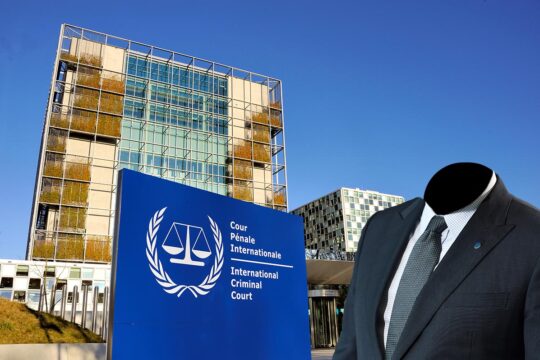"Siméon Nshamihigo," Judge Güney said. "Is that you?" "Yes, it is me," the suspect replied. At the time of his arrest, Nshamihigo was working under an assumed name, using a Congolese passport. He confirmed that he was arrested on May 19th in the premises of the ICTR, and taken into Tanzanian police custody on immigration charges. He said he had been told it was "because of the names marked in my passport". Nshamihigo told Judge Güney he had subsequently learned that "I must come to the ICTR to answer questions that the Prosecutor may want to put to me". The suspect confirmed that on May 25th he was brought a second time before an Arusha court, in the immigration case. He was then handed over to the custody of the ICTR, which is investigating him for genocide. Nshamihigo was represented in court by Tanzanian duty counsel Jesse Kirita, while the Prosecutor was represented by Richard Karegyesa of Uganda. When asked, neither party had any comments for the Judge. Nshamihigo, however, had a request. "Honourable judge," he said, "I am being kept in an annexe of the United Nations Detention Facility here. I would like to go to the main UNDF. "Judge Güney replied that such arrangements were regulated by ICTR Rules, and administered by the Registry, but that he had "taken note" of the suspect's request. Tribunal Rules require that suspects be kept separate from accused persons. On May 21st, Judge Güney granted a 30-day provisional detention order for Nshamihigo. This can be renewed for two further 30-day periods, if the judge so decides. However, the total period of provisional detention cannot exceed 90 days. Nshamihigo was prosecutor for the southern Rwandan region of Cyangugu at the time of the 1994 genocide. Before his arrest he had been working for the defence team of former Cyangugu military commander Samuel Imanishimwe, currently on trial before the ICTR. JC/PHD/FH (NG0604E)
Countries
- Afghanistan
- Algeria
- Angola
- Argentina
- Armenia
- Australia
- Austria
- Azerbaijan
- Bahrain
- Bangladesh
- Belarus
- Belgium
- Benin
- Bosnia & Herzegovina
- Brazil
- Burkina Faso
- Burundi
- Cambodia
- Cameroon
- Canada
- Central African Republic
- Chad
- Chile
- China
- Colombia
- Cote d’Ivoire
- Croatia
- Cyprus
- Dem. Rep. Of Congo
- Denmark
- Ecuador
- Egypt
- El Salvador
- Equatorial Guinea
- Eritrea
- Ethiopia
- Finland
- France
- Gabon
- Gambia
- Georgia
- Germany
- Ghana
- Greenland
- Guatemala
- Guinea
- Haiti
- Honduras
- Hungary
- Indonesia
- Iran
- Iraq
- Ireland
- Israel
- Italy
- Japan
- Jordan
- Kenya
- Kosovo
- Laos
- Lebanon
- Liberia
- Libya
- Lithuania
- Malaysia
- Maldives
- Mali
- Mauritania
- Mauritius
- Mexico
- Myanmar
- Namibia
- Nepal
- Netherlands
- New Zealand
- Nicaragua
- Niger
- Nigeria
- North Korea
- Norway
- Pakistan
- Palestine
- Peru
- Philippines
- Poland
- Republic of Congo
- Russia
- Rwanda
- Scotland
- Senegal
- Serbia
- Seychelles
- Sierra Leone
- Somaliland
- South Africa
- South Korea
- South Sudan
- Spain
- Sri Lanka
- Sudan
- Suriname
- Sweden
- Switzerland
- Syria
- Taiwan
- Tanzania
- Thailand
- Timor-Leste
- Togo
- Tunisia
- Turkey
- Uganda
- Ukraine
- United Arab Emirates
- United Kingdom
- United States
- Uruguay
- Vanuatu
- Venezuela
- Vietnam
- Yemen
- Zimbabwe



